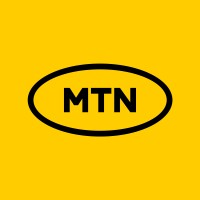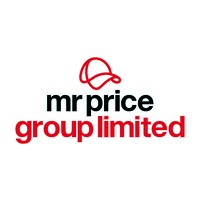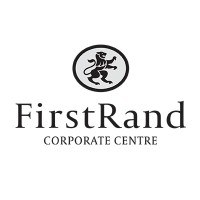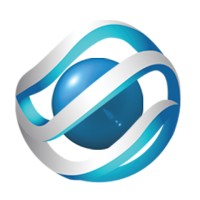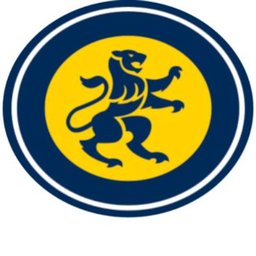MTN is entering a new phase in its lifecycle where operational and commercial excellence has become critical for success. The urgency for change has become more heightened amidst increased competitive intensity across all markets in which MTN operates. The MTN SA’s function must therefore ensure the successful delivery in context of:
- Fast moving industry with constantly changing business requirements and technologies
- Highly competitive market with new and established competitors and aggressive competitor strategy and delivery
- Highly dynamic and fluctuating Telecommunications industry
- Fast moving industry
- Market dynamics and developments
- MTN policies, processes and procedures
- Regulatory industry norms govern MTN and partners
- Highly pressurized, deadline-driven environment
- Fast changing, regulated business environment
- Rapid advancement of systems and technology
- Legislative environments
- MTN Group standards and applications
- Participative environment – highly diverse and team-focused
- Move to agile and digital first
Task Complexity:
Main Responsibilities: Understand, Observe, Analyse and Document
- Define problem statement, opportunity or constraint based on understanding of the current state. Conduct pre-session research to understand Business Case motivating factors, business objectives and desired future state.
- Conduct Risk Analysis in understanding the risks associated with achieving the future state and mitigation strategies. Develop project scope and define boundaries
- Consult experts to find out more about the area of concern/problem/Business Objectives through observing and engaging with people to understand motivations and stakeholder goals
- Analyse & Simplify requirements / objectives with key stakeholders
- Plan Stakeholder Engagement, identify and compile a list of personas their characteristics and responsibilities. Identify stakeholders who will have the responsibility and authority to make decisions about business analysis work including who will be responsible for setting priorities and who will approve changes to business requirements.
- Facilitate workshops (e.g. white board sessions) with stakeholders to understand their needs, analyse and elicit requirements.
- Lead Design or Design Thinking sessions through Problem Definition, Research & Requirements gathering, Ideation and Prototype Designs
- Brainstorm ideas and activities that will be performed across initiative including who will perform the activities, the timing and sequencing of the work, the deliverables that will be produced and business analysis technique that may be utilised.
- Capture information in a format that is specific to elicitation activity e.g. user stories, customer journeys, prototypes, etc including As-Is and To-Be Business Processes, and reporting requirements
- Structure ideas & and generate requirements documents (either RDS or Agile User Stories) defining solutions across people, process, technology and data
- Produce Requirements Traceability Matrix to ensure requirements have a clearly defined relationship to other requirements solution components, or releases or phases or iterations, within solution scope.
- Prioritise requirements, in the form of user stories, to ensure that the highest valued requirements are addresses first.
- Assess requirements changes, obtain recommendation to approve, modify or deny a proposed change to requirements
- Complete IRS documentation in conjunction with the Solution Architects
General
- Adherence to the Project Management Office governance always
Problem Solving / Solution Design
- Design and document business solutions (process, system and measurements) that meet current and future requirements
- Review and re-engineer processes within the value stream to meet the required service levels – aligned with Business Architecture
- guidelines and methodologies
- Review and edit requirements, specifications, business processes and recommendations related to proposed solution
- Define and construct context diagrams which form part of the basis of process mapping
- Assist in drafting policies, processes and procedures for business unit. Consider the long term (1-2 years) implications of actions from a more broad
- perspective
- Drive best practice, continuous improvement and innovation at process and procedure level
- Consider local conditions, as well as competitor activity
- Construct, implement / fine-tune methods, processes / systems to enhance effectiveness / meet organisational goals
- Drive and challenge business units on their assumptions of how they will successfully execute their plans
General
- Adherence to the Project Management Office governance always
Problem Solving / Solution Design
- Design and document business solutions (process, system and measurements) that meet current and future requirements
- Review and re-engineer processes within the value stream to meet the required service levels – aligned with Business Architecture
- guidelines and methodologies
- Review and edit requirements, specifications, business processes and recommendations related to proposed solution
- Define and construct context diagrams which form part of the basis of process mapping
- Assist in drafting policies, processes and procedures for business unit. Consider the long term (1-2 years) implications of actions from a more broad
- perspective
- Drive best practice, continuous improvement and innovation at process and procedure level
- Consider local conditions, as well as competitor activity
- Construct, implement / fine-tune methods, processes / systems to enhance effectiveness / meet organisational goals
- Drive and challenge business units on their assumptions of how they will successfully execute their plans
Reporting and feedback
- Understand and document existing and new business processes and requirements
- Prepare routine reports (financial, quality, production, customer service, operational efficiency, market share, etc.). Provide input from the
perspective of cross-departmental functions
- Ensure traceability of requirements from business through to development and implementation
- Identify and prepare relevant information and data for reporting purposes
- Develop appropriate analytical models and reports to support informed decision-making
- Include recommendations on how to implement suggested procedural improvements
- Coordinate process measurement requirements to ensure efficient and effective use of information resources
- Make assessments of and draw solutions from qualitative data. Make logical deductions and draw conclusions that can be motivated
- Document all relevant information from business analysis streams, according to Programme Office guidelines and methodologies
Quality Management
- Accurately assess the risks associated with each quality process
- Establish and maintain quality standards that will enhance the customer experience and cost efficiency
- Work consistently according to standard operating procedures
- Understand and communicate the consequences of not maintaining quality focus
- Identify processes and procedures where the quality of work may be improved
- Analyse situations and take necessary action to ensure quality is maintained
- Seek feedback from clients/ stakeholders and continuously seek ways of improving on quality and customer service standards
Reporting and feedback
- Understand and document existing and new business processes and requirements
- Prepare routine reports (financial, quality, production, customer service, operational efficiency, market share, etc.). Provide input from the
perspective of cross-departmental functions
- Ensure traceability of requirements from business through to development and implementation
- Identify and prepare relevant information and data for reporting purposes
- Develop appropriate analytical models and reports to support informed decision-making
- Include recommendations on how to implement suggested procedural improvements
- Coordinate process measurement requirements to ensure efficient and effective use of information resources
- Make assessments of and draw solutions from qualitative data. Make logical deductions and draw conclusions that can be motivated
- Document all relevant information from business analysis streams, according to Programme Office guidelines and methodologies
Quality Management
- Accurately assess the risks associated with each quality process
- Establish and maintain quality standards that will enhance the customer experience and cost efficiency
- Work consistently according to standard operating procedures
- Understand and communicate the consequences of not maintaining quality focus
- Identify processes and procedures where the quality of work may be improved
- Analyse situations and take necessary action to ensure quality is maintained
- Seek feedback from clients/ stakeholders and continuously seek ways of improving on quality and customer service standards
- Understand customer needs and develop and fine-tune systems accordingly
- Ensure customer needs and requirements are satisfied through appropriate systems / processes / procedures
- Put contingency plans in place to prevent delays and enhance the customer experience
- Adopt a proactive approach to prevent problems from arising in the future
- Initiate change to continually improve all aspects of service delivery
Identify trends / patterns pertaining to customer requests and needs and filter this information through to business units to continually improve all aspects of service delivery
AI
- Work with Co-pilot using prompts to elicit requirements documents, automated testing and input to high level designs (HLD’s)
Minimum Requirements - Experience:
- At least 8 years business analysis and business optimisation experience, in process driven environments
- At least 3 years of leadership experience in similar positions, in fast-moving industries
- Previous experience in managing a team of business analysts is essential
- Minimum 3 years of hands-on experience in Design Thinking analysis and prototyping is essential.
- Minimum 3 years of hands-on professional experience in Design Thinking analysis &
Experience in defining user journeys
- At least 3 years working in an Agile environment is essential
- Proven experience in facilitating white-boarding sessions with cross-functional teams and working on large-scale technology projects
Working experience required:
- Must have experience working on large scale projects as well as handling day-to-day operational requests from the business
- Experience working in an Agile environment is required
- Proven experience working with Excel and developing and maintaining various analyses and reporting tools
- Understanding fundamentals of analytical data, returns level data etc.
- Experience in process mapping, process re-engineering and GAP analysis
- Proven ability to develop, document and maintain operational policies and procedures, including the designing and documenting detailed
process flows, and the development of operational performance and quality metric standards and reports
- Proven experience in facilitating white-boarding sessions with cross-functional teams and working on large-scale technology projects
- Experience in a telecommunications environment is advantageous but not essential
- Written and verbal communication, including technical writing skills
About MTN South Africa
Launched in 1994, MTN South Africa is a subsidiary of MTN Group, a leading emerging market operator with a clear vision to lead the delivery of a bold new digital world to our customers. We are inspired by our belief that everyone deserves the benefits of a modern connected life. The MTN Group is listed on the JSE Securities Exchange in South Africa under the share code ‘MTN’. Our strategy is Ambition 2025: Leading digital solutions for Africa’s progress.
